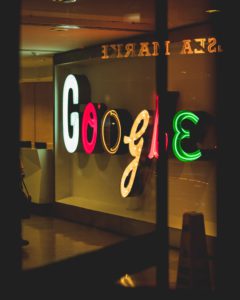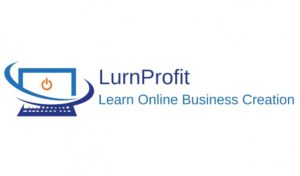The 3 Most Highly Trafficked PPC Engines on the Web
Facebook PPC, Bing PPC ads and Google AdWords are the three most highly trafficked PPC engines in the world. Mastering just one of these platforms can provide your company with a vast stream of profitable traffic.
Here’s a comparison of Facebook, Google and Bing, along with an analysis of what kind of companies should use each service.
Google AdWords-
Google AdWords is still the big gorilla in the PPC space. Though Facebook might have comparable traffic in terms of impressions, because of Google’s massively higher CTRs, the amount of traffic you can get to your website through Google is still considerably higher than Facebook.
Google AdWords has the advantage of being the most proven platform. On the other hand, it also has the disadvantage of being the most competitive platform.
Google will offer you more raw traffic than any other platform. However, in order to make Google AdWords work, you need an extremely strong sales funnel.
You need to have strong conversion rates, as well as a strong backend. Your earnings per click need to be high enough for you to compete in the AdWords marketplace.
Bing PPC Ads
Since the acquisition of Yahoo’s search market share, Bing has become a serious contender in the PPC space.
Bing has considerably less traffic than Google. Depending on the market, you can expect anywhere between one fifth and one tenth of the traffic you’d get from Google AdWords.
However, on the upside, marketers often find that Bing traffic converts better than Google traffic. Your ROI may be higher.
Bing users are different than Google users. Google users usually have to set their toolbars to Google, set their homepages to Google, download Google Chrome or manually go to Google. On the other hand, Bing users are people who tend to use Internet Explorer, the default browser, and just use whatever search engine is installed.
In other words, Bing users tend to be less technically savvy. They may also be less discerning when it comes to making purchase decisions.
All of this depends on the specific market you’re targeting and varies on a case by case basis. Make sure you test it all for yourself.
Facebook PPC Ads
Facebook PPC ads is just beginning to become a serious contender. Though Facebook has millions upon millions of views, the CTRs on Facebook are usually a fraction of a percent. Also, your visitors usually aren’t searching for your product.
Instead, they’re clicking on your ad because something caught their eye. Usually you’ll have a harder time selling to Facebook customers than search customers, because search customers are actively looking for solutions to their problems.
The upside, however, is that very few marketers understand Facebook marketing. If you can find a profitable campaign, you’ll have little competition.
These are the three most common and most highly trafficked PPC engines on the web. The one you choose depends on your product, your marketing tactics and your target audience.
PPC Ads Success-
If you can do well on PPC ads, you can drive a lot of profitable traffic to your website. PPC ads allows you to bypass the long, somewhat random and often expensive process of trying to get your websites ranked in the search engines.
Instead of trying to get rankings, you can just pay for the traffic instead. These three laws of PPC ads will help you ensure that you’re earning a positive ROI on this traffic.
Track Every Sale Back to the Keyword-
The most important thing to track in PPC ads is the keywords that brought you the conversions. If you can identify converting keywords, you’re 90% of the way there.
Usually you’ll start with a large keyword list, the majority of which won’t be profitable. As you run traffic, it’s critical that you have tracking software which allows you to see where your sales are coming from.
You can use Google’s in-house tracking solutions, or you can use your own third party solutions. However, never ever ever run traffic without some sort of mechanism for tracking each sale back to the keyword that generated it.
Test Broad and Minute Ad Copy Changes-
Always keep split testing. An ad that starts out with a 0.3% CTR could in a few months be getting a 3% CTR – effectively giving you ten times the traffic. In addition, with a higher CTR you’ll be paying a lower CPC, further driving up your profits.
Start by testing huge changes. For example, start by testing drastically different headlines and different kinds of ad copies. Try putting the price in your headline, for example, or using a shocker versus a how-to ad. Your ads should be completely different animals.
Then once you find a type of ad that seems to work best, gradually test more and more minute changes.
Understand Quality Score-
Each PPC engine has a quality score that’s slightly different than the other. Google AdWords’ quality score is different than Bing’s and both of them are different from Facebook.
On Bing, your quality score depends on your keyword relevance, landing page relevance and landing page user experience. The score is calculated on each match type. Unlike AdWords, they offer suggestions to improve your score.
AdWords’ quality score also takes relevance into account, as well as a high emphasis on CTR. They take the quality of your brand into account as well. There’s a large element of AdWords’ formula that’s secret.
Facebook’s is highly CTR centric. The higher your CTR, the better your CPC. The landing page quality guidelines are binary: it’s either good enough to be displayed or not.
If you follow these three tips of PPC ads success, you’ll be well on your way to a profitable campaign.
To your great success on your online business journey, Bob@Lurnprofit
Please leave any questions or comments below.


